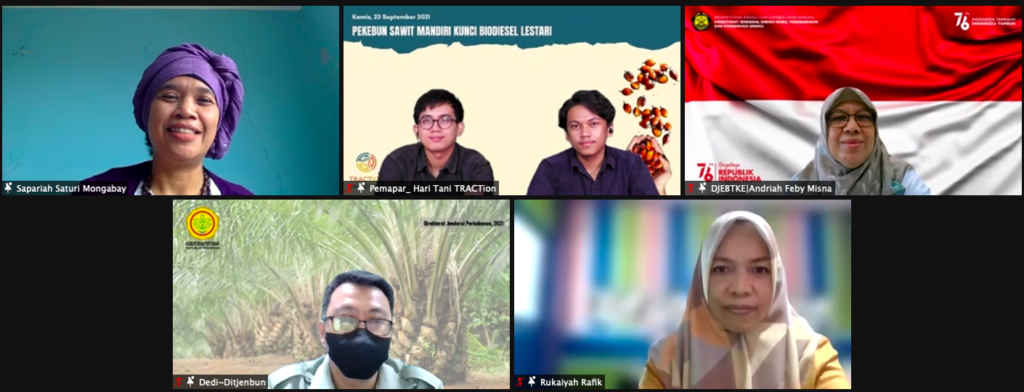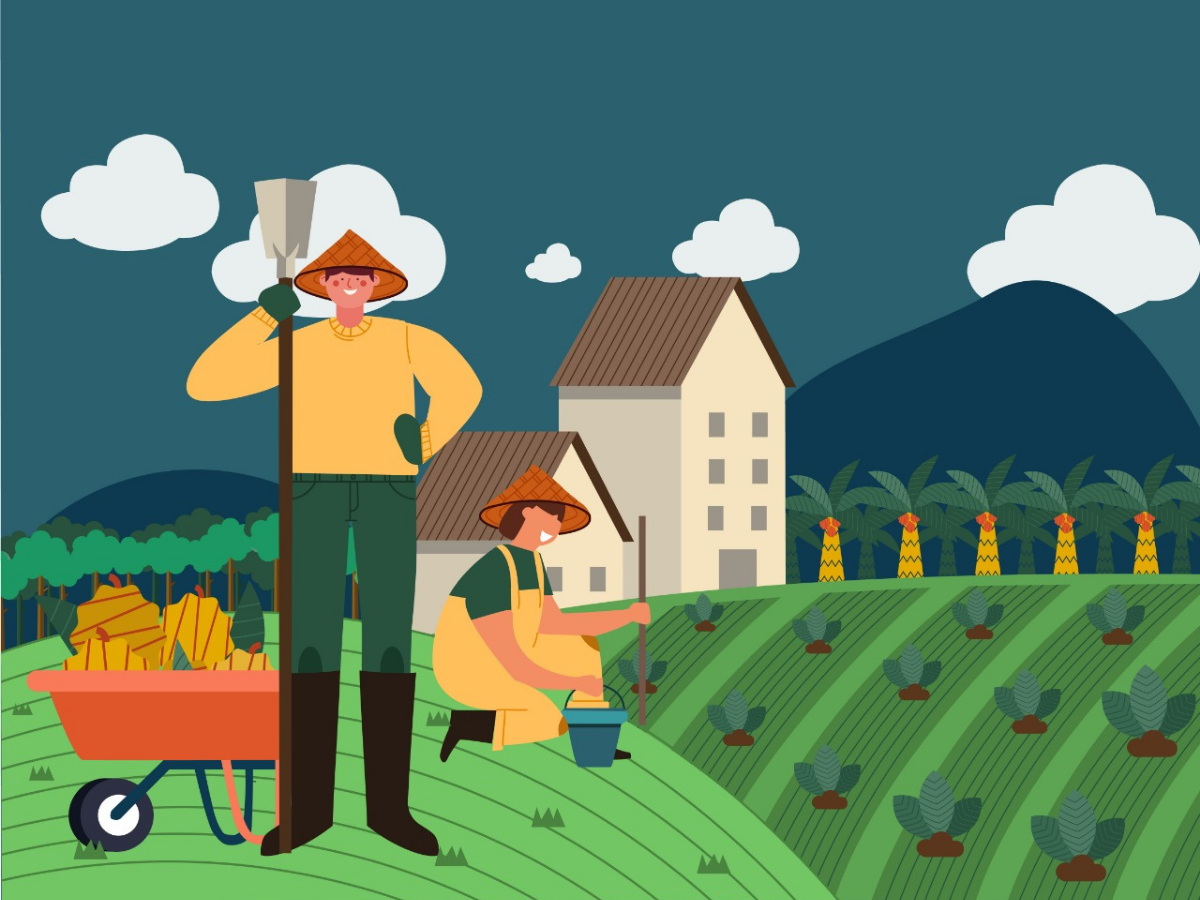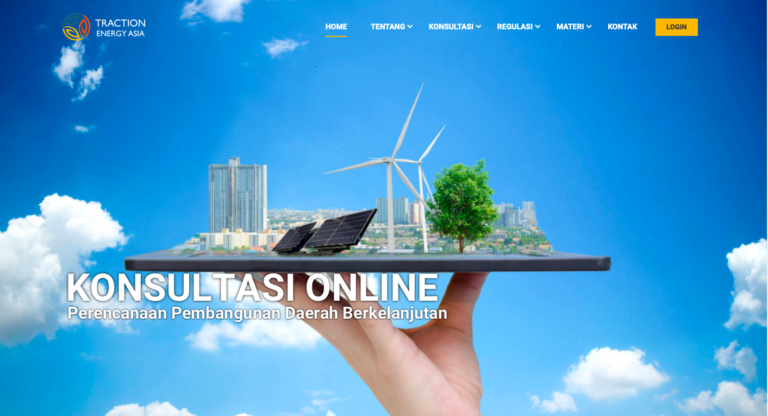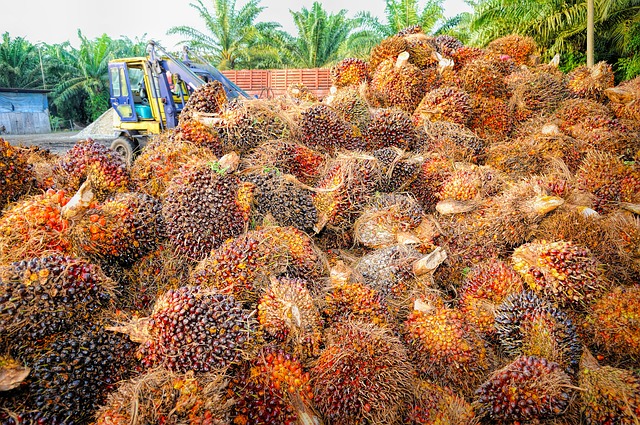Indonesia’s National Farmers Day on September 24, commemorates the enactment in 1960 of Law no. 5 on Basic Agrarian Regulations (Peraturan Dasar Pokok-Pokok Agraria), to replace the Dutch colonial regulations with a national agrarian law that aligned with the interests of the Indonesian people. The Basic Agrarian Regulations were further strengthened in 1963 by Presidential Decree (Keppres) No. 169.
As the world addresses the challenge of climate change and global warming, and the need to reduce greenhouse gas emissions, National Farmer’s Day provides a timely reminder that agricultural production, farmers’ welfare and environmental problems are closely linked. The need to cultivate more land for agricultural products has the potential to drive large increases in carbon emissions from land conversion. The 2019 Intergovernmental Panel of Experts on Climate Change (IPCC) report stated that between 2007-2016, as much as 23% of total global emissions came from agriculture, forestry and other land uses. It is clear that using best practice sustainable agricultural practices, combined with increasing the welfare of small farmers, and providing them with support to use sustainable farming practices can be an important contribution to reducing the emissions that cause global warming.
To highlight these issues, Traction Energy Asia held a talk show “Independent Palm Oil Planters Key to Sustainable Biodiesel” on September 23, as part of a series of events marking Low Emissions Week – promoted by Traction Energy Asia together with other Indonesian NGOs working on these issues such as Madani Berkelanjutan, Coaction/Koaksi, and Sawit Watch. Aside from National Farmers Day, Low Emissions Week also included events to mark World Ozone Layer Protection Day (September 16), World Zero Emissions Day (September 21) and, Car Free Day (September 22).

During the “Independent Palm Oil Planters Key to Sustainable Biodiesel” talk show, Traction Energy Asia presented the findings of its latest report, “Cost-Benefit Analysis of Including Independent Palm Oil Smallholders in Indonesia’s National Biodiesel Trading System” to provide economic arguments for the government to provide policy measures to support this important initiative. Responders to the report findings included Musdhalifah Machmud (Deputy for Food and Agriculture Coordinator of the Coordinating Ministry for Economic Affairs), Heru Tri Widarto (Director of Annual Crops and Refreshments of the Ministry of Agriculture), Dadan Kusdiana (Director General of New Renewable Energy and Energy Conservation of the Ministry of Energy and Mineral Resources ), and Rukaiyah Rafik (Head of the the Fortasbi Indonesian Sustainable Palm Oil Farmers Forum.
The sustainable production of palm oil was the key issue highlighted in this research and discussion. This is because the government in recent years has implemented the mandatory biodiesel program as one of the policies to reduce the nation’s dependence on fossil fuels. On the surface, it is true that biodiesel seems to be more environmentally friendly than fossil fuels.
However, the biodiesel policy has not taken into account the volume of emissions that arise from the upstream sector, from oil palm cultivation to processing fresh fruit bunches into crude palm oil (CPO), for example from land conversion such as peat, the type and amount of fertilizer used, the distribution process of the fresh fruit bunches to palm oil mills, and the management of palm oil effluent that produces methane gas. A previous study by Traction Energy Asia found that greenhouse gas emissions caused by converting forests to plantations and palm oil mills alone contributed 83-95% to national greenhouse gas emissions.
On the other hand, the increasing demand for crude palm oil (CPO) due to the biodiesel policy does not necessarily bring prosperity to the smallholders. Palm Oil Statistics (Central Bureau of Statistics, 2019) states that a third of our palm oil comes from smallholder plantations. The people’s plantations themselves consist of plasma smallholders (smallholders contracted by oil palm companies) and independent smallholders. The number of independent smallholders is not yet known because their status is also not legally recognized, but in general they are assumed to farm a maximum area of five hectares of oil palm, with low productivity of only around one ton per hectare. They also tend to be in the lower economic class and are usually the beneficiary families of social security.
Traction Energy Asia’s latest working paper calculates the cost of the policy program for placing independent smallholders in the biodiesel trade system, and compares it with the potential benefits. The results of our calculations show that from every cost incurred in implementing this policy there are 2.13 benefits obtained. With the value of benefits greater than the value of costs, this policy is feasible.
From an environmental point of view, the involvement of independent oil palm smallholders in the national biodiesel supply chain can support the Government of Indonesia’s commitment to reduce greenhouse gas emissions by at least 29% by 2030. Emission reductions can occur because the risk of deforestation can be reduced if independent smallholders become formal actors in the biodiesel supply chain. Including smallholders in the supply chain increases transparency and traceability, and reduces the greenhouse gas emissions from land expansion to grow more oil palm for biodiesel.
However, the productivity of independent oil palm smallholders is only around half of the productivity of oil palm companies. To meet the same needs, independent oil palm smallholders need twice as much land as the company’s land which will increase emissions and risk damaging the environment. So, there needs to be serious commitment from palm oil companies to form partnerships with independent smallholders to increase their capacity to increase productivity on existing lands by using best agricultural practices. The cost-benefit analysis provides evidence to support the involvement of independent oil palm smallholders in the national biodiesel supply chain through budget savings of up to 141 billion rupiah for environmental disaster mitigation programs in Riau and West Kalimantan Provinces, and greenhouse gas reduction programs in Riau Province.
On the other hand, this policy also benefits independent smallholders. The palm oil market has many sellers with few buyers, so the bargaining power of independent smallholders is low. The policy of placing independent smallholders in the CPO supply chain contributes to increasing the income of independent oil palm smallholders and their families. For the government, this means saving 61.4 billion rupiah in social security budgets and an added value of 144 billion rupiah from a more sustainable trade in palm oil fresh fruit bunches.
Rukaiyah Rafik from FORTASBI expressed her opinion on what the government should do to ensure sustainable biodiesel from the upstream sector. “The biggest challenge for farmers is land mapping and legal aspects. Therefore, we welcome the efforts to involve independent smallholders for a better biodiesel trade system and the implementation of targeted policies. For example, what should be a priority is mapping or studying the locations of oil palm plantations used for biodiesel, especially smallholders who do not have access to quality seeds.”
Meanwhile, in terms of policy, Andriah Feby Misna who represents the Ministry of Energy and Mineral Resources explained the ministry’s efforts so far in ensuring sustainable biodiesel. “Our commitment to ensuring sustainable biodiesel is to prepare sustainability indicators for the biodiesel industry, where traceability and transparency are included. These indicators are being studied. The Ministry of Energy and Mineral Resources is ready to encourage biodiesel programs to implement these sustainability indicators.”
In the end, according to Dedi from the Ministry of Agriculture, the government cannot work alone and needs support from various parties. “To ensure that the price of [oil palm] fresh fruit bunches received by farmers is more reasonable, oil palm planters need to cooperate with palm oil mills. To encourage this, this cannot be done alone by the government. We also need support and cooperation from relevant stakeholders, including farmer associations,” he concluded.






